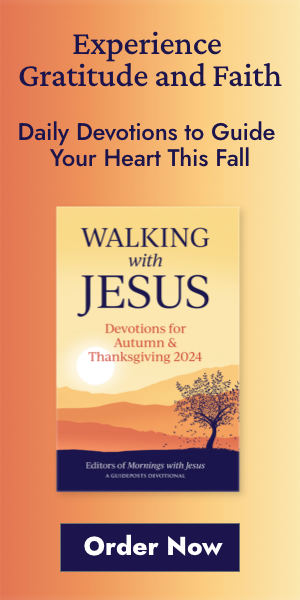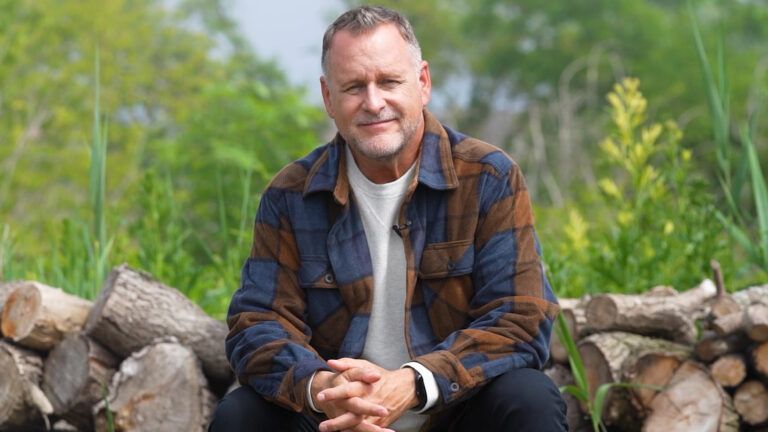Life is hard on the reservation. I should know. I’ve lived most of my 63 years here. A third of my people are unemployed, more than half living below poverty level. People drink and abuse drugs, sometimes passing out in the street. It’s a legacy many Indians wrestle with, a legacy of broken promises and dreams. Especially at Pine Ridge, the poorest of America’s reservations, set aside for the Oglala Lakota Sioux nation, whose members were later massacred at Wounded Knee almost 120 years ago. You don’t have to look hard to find despair. It’ll find you if you’re not careful.
Yet I don’t despair. I live each day with hope and love in my heart. You might wonder why, since I get by on little more than a military pension and my ancient van’s about to fall apart. I have this dream about building a little church in my community, but I know it will take an act of God to make it happen. So why do I hope? Why do I wake up each morning glad to be alive? Because once I was one of those angry young men passed out in the street, giving in to despair. I was—until something happened to remind me of a strength I’ve been given to weather dark times, a strength that goes beyond our legacy, something reaching back through generations of my family.
By the time I hit my mid-twenties I had a lot going for me. I’d married a wonderful woman named Rose Lone Elk. I’d been honorably discharged from the Army after two tours as a combat engineer in Vietnam. I’d found work at a moccasin factory on the reservation. That’s where I met Rose. Yet I was ruled by something dark and powerful—an anger running deep in my soul. Anger at my parents for being drunks and abandoning me before I turned a year old. Anger that the faith my aunt Ollie and uncle Lawrence instilled in me—they even sent me to a Christian school—seemed empty when I got back from Vietnam and found the reservation to be as depressed as ever. What had I fought for? Did God care about my people? Did He even exist? Religion no longer held any answers for me.
Most deeply I was angry at myself. I knew what I was doing, throwing opportunities away, drowning my anger in bars, ignoring Rose’s pleas to stay sober and go to church with her. I told myself I needed an outlet, and only drinking and fighting would do. I made enemies with everyone from the tribal authorities to my own relatives. “You bring a bad name to this family,” said another of my aunts, Martha. “Your grandfather was an Episcopal priest. He survived Wounded Knee! Look how you disrespect him. Just like your parents.”
That kind of talk only made me wilder. One bitterly cold December night my wildness took a dangerous turn. I holed up in a house with my drinking buddies, the kitchen stocked with booze—and guns. We planned to get drunk, then go out and shoot things up. By then Rose had moved out, taking her two girls, whom I loved like my own. She’d told me before we married she didn’t want to end up like other women, shackled to a drunk. Maybe it was thinking about that, or maybe it was because I wanted to do more shooting than drinking that night—but I’d hung back from the kitchen. As my buddies got loaded I found myself pacing by the front door, feeling trapped.
I listened to the wind howl outside, trying not to think about what a screwup I was. Aunt Martha was right. I shamed my ancestors. Grandfather James Red Fish had been just 12 when his parents were killed at Wounded Knee. He’d escaped the massacre by hiding in a ravine. He’d lost his parents too. Yet he’d grown up to become a man of God! I’d barely gotten to know him before he died, though I’d seen his old Dakota-language Bible at Aunt Martha’s. Why hadn’t I turned out like him? Why hadn’t that book saved me?
A knock sounded at the door. I looked up, startled. My buddies were whooping it up and I couldn’t imagine who would be coming to the house at this hour. I yanked the door open. Standing on the porch was a scrawny, elderly man in a blue jacket buttoned to the neck, his head covered with a fleece-lined hat. I stared, thinking he might be a vision from my past. But I wasn’t drunk—and it really was who I thought it was. Before me stood Reverend Ellis Burchfield, one of my teachers at Brainerd Indian School, the Christian school I’d gone to.
“Darrell—” he began. I shut the door in his face and stood there, not sure what to do. I knew it was too cold for anyone to be out in just a coat. But what was Reverend Burchfield doing here? I’d seen him just once since school, at my wedding reception a year before. If I’d thought of him at all it was as one more member of that sanctimonious chorus telling me to get right with God—Rose, Aunt Martha, Aunt Ollie, even the memory of Grandpa Red Fish.
Yet I couldn’t just leave him standing out there. I opened the door. He was gone! I raced out into the cold. No sign of him. I jumped in my station wagon and roared down the street, not sure whether I was looking for the old man or trying to get away from him. I rounded a corner—and there he was, huddled on a curb. I pulled over and shouted at him to get in the car. When he did I began driving. “What are you doing out here?” I yelled.
His teeth were chattering, but he managed to say, “I was praying for you, Darrell.” I turned to him with a look of what I can only imagine was such crazed disbelief I’m surprised he didn’t jump out. Instead, he told me a story just as crazy. He was retired now, he said, living in Pennsylvania. But he’d been praying a few weeks before and had heard God say quite clearly he needed to come back to Pine Ridge and find Darrell New Plenty Stars and tell him his soul was in danger. So he’d done it.
The car became very quiet. Outside, a reservation road dusted with new snow rolled under the headlights. I wanted desperately to be angry with this man for barging in on my life like this. But for once I couldn’t feel any anger. I couldn’t find those words of rage that would make him realize how pointless his errand had been. How hopeless I was.
In my heart I knew what he’d said was true. I knew why it was true. I heard Aunt Martha. I thought about Rose and the girls. I pictured that old Dakota Bible. And I wondered, What was it about these Christians that made them so different from me? I looked at the Reverend. What had made him drive all this way just to deliver some message I probably wouldn’t believe? I’d barely formed the question in my mind before I knew the answer. It was an answer I’d been running from all my life, but now I couldn’t avoid it sitting right there next to me. They had love. God’s love, pure and simple. They looked for it amid the hardships. They tried to live it. And somehow, by some mystery I didn’t understand, that made them stronger than all the anger I’d ever felt.
Our drive that night ended at a small church where I prayed maybe my first heartfelt prayer. After that came what seems like a series of miracles—the forgiveness I sought from many on the reservation, especially my family. Rose and I getting back together, attending Bible school and beginning our ministry. Even Aunt Martha finally admitting I was a changed man and giving me Grandpa Red Fish’s Dakota Bible. Reverend Burchfield left after a short time mentoring me and returned to Pennsylvania.
What I stay focused on, though, is the mystery. It’s the reason I don’t despair here at Pine Ridge. I’m retired from ministry these days, sharing my faith mostly when I strike up a conversation at Walmart. But I remain sure that love, even when it seems overwhelmed by problems, is always stronger than anger. It was for me, and it has been for my family. A wellspring, reaching back through generations and beyond.
For more inspiring stories, subscribe to Guideposts magazine.




